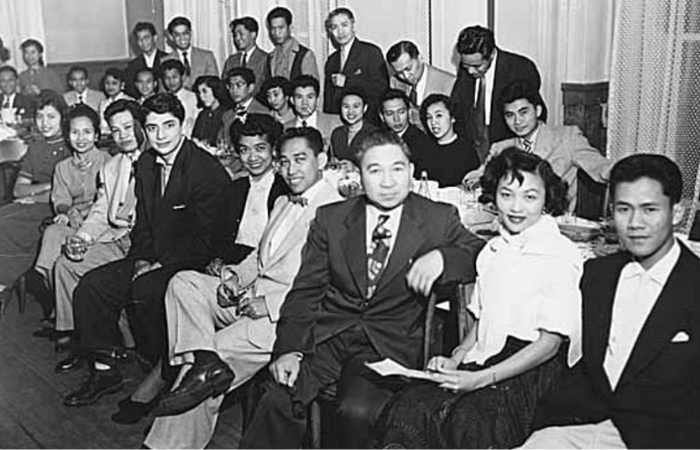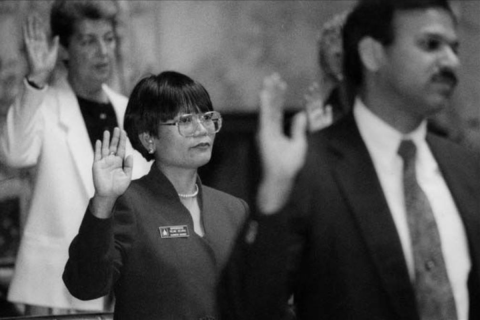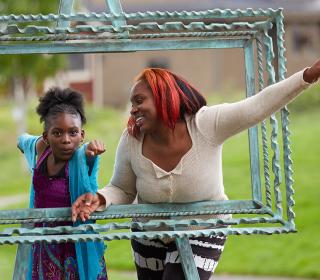Each May, Asian Pacific Islander Heritage Month invites reflection on heritage: language, lineage, and the communities that shape us. But this year, we celebrate amid dismantling. Immigrant rights are being deliberately eroded. Children as young as six appear in court without counsel. Federal agents conduct “wellness checks” that result in family separations. And birthright citizenship, once a settled constitutional right, is now under review by the U.S. Supreme Court.
This is not drift. It is design.
I am the daughter of a Filipina immigrant from Lolu barangay in Pampanga, born in Oakland and raised in Washington. Like many families, we found a foothold in places like White Center, in communities built by migrant labor but long neglected by public investment. In these neighborhoods, institutions like the YWCA at Greenbridge are not ancillary. They are essential. They reflect the infrastructure our communities built, nurtured, and defended in the absence of guaranteed or formal support.

University of Washington Filipino Student Association, Seattle (1952)
Filipino migrants have long helped shape this region’s civic foundation. We launched newspapers, formed organizations, and organized for labor rights That legacy is now at odds with policies that criminalize our presence, erase our contributions, and destabilize the rights and protections we fought to secure.
In many local enclaves, immigration status governs daily life: whether to seek medical care, enroll or keep a child in school, or report abuse. With the rollback of “sensitive location” guidance, Immigration and Customs Enforcement can now operate in schools, hospitals, and places of worship. These incursions do more than result in arrests. They fracture families, disrupt services, and erode trust in public service institutions.
The implications for cities like Seattle are structural. Our economy depends on migrant labor, from caregiving to construction to tech. Removing these workers does not simply displace individuals. It destabilizes entire sectors. Deportation is not an isolated act. It dismantles systems, often irreparably.
More, the legal system is unprepared for the fallout. Family courts are overwhelmed. Child welfare agencies lack capacity. Children are placed in foster care or disappear into far worse outcomes. There is no national framework for what happens when a parent is taken.
These harms are compounded by fear. Policies do not need to ban services when fear renders them inaccessible. Deterrence by design is now a feature, not a flaw.
Today, a challenge to birthright citizenship has reached the highest court in the nation. If upheld, it would reverse 125 years of precedent, render millions stateless, and create a permanent underclass of American-born children without rights.
The pattern is clear: break families, suppress rights, and undermine the idea that citizenship protections apply equally. But the law is not supposed to be a weapon. It is supposed to be a shield.
There is a path forward. It is grounded in legal and moral clarity. We need frameworks that uphold due process, protect family unity, ensure access to legal counsel for children, and affirm that citizenship is a birthright, not a privilege subject to political winds. Immigration rights cannot be separated from housing, healthcare, education, and child welfare. These systems intersect. Undermine one, and the rest collapse.

Velma Veloria, the first Asian American woman and the first Filipina American elected to the Washington State Legislature, taking oath of office at the Washington State House of Representatives, Olympia. (January 11, 1993)
To advance justice, we must confront the legal and historical architecture we have inherited. From the Chinese Exclusion Act to Japanese internment, the Bracero Program, and the ongoing displacement of poor communities, U.S. immigration law has long functioned as a mechanism of racial, economic, and political control. The need to uphold immigrant rights and reform this system has never been clearer.
Legal rights are not always revoked by statute. They are surrendered through fear, eroded through silence, and withheld by design. When families fear the doctor, the school, or the courtroom, their rights are already out of reach.
This May, honoring our histories means holding systems accountable. We demand due process, access to housing, healthcare, and other essential supports without fear, and the enduring promise of citizenship. Safety is not partisan; it is a legal and moral obligation.
We are stitched into this nation, not at the margins, but at its core. The question is whether the country will recognize its own seams.
Let this be our collective vow: to speak truth, protect children and families, and build systems worthy of the people they serve.
We share the stories of our program participants, programs, and staff, as well as news about the agency and what’s happening in our King and Snohomish community.


